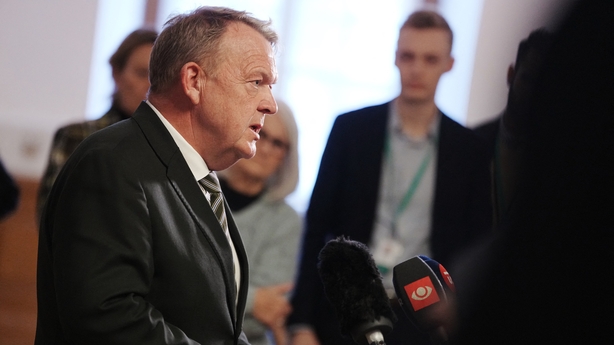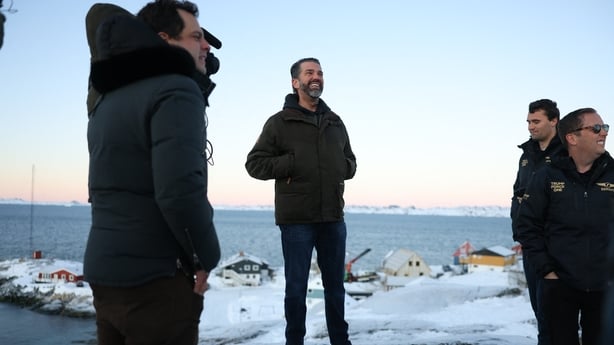Denmark's prime minister has said she had reached out to US President-elect Donald Trump following his remarks about taking control of Greenland, which Denmark said were being taken seriously.
Mr Trump, who takes office on 20 January, set off alarm bells on Tuesday when he refused to rule out military intervention to bring the Panama Canal and Greenland under US control.
Denmark has said it is open to talks on US interests in the Arctic, but the prime minister has insisted that "Greenland belongs to the Greenlanders".
European leaders have also supported the sovereignty of the Arctic island that is an autonomous Danish territory. Russia has voiced concern for maintaining peace and stability in the region.
Danish Prime Minister Mette Frederiksen summoned leaders of the parties in Denmark's parliament, including Greenland's two representatives, to a meeting today to brief them on the government handling of events.

Few details emerged from the two-hour talks, but Frederiksen told reporters after that her office had reached out to Trump though the two had not spoken yet.
"We have proposed a conversation between us. I don't think anything concrete will happen until the president-elected is installed," she said.
She reiterated that she did not believe Trump would try to seize Greenland by force.
"We have no reason to believe that would happen."
The head of the right-wing Danish People's Party, Morten Messerschmidt, told TV2 television after the talks he was "completely confident that the (Danish) government wants to work closely with the United States... our most important economic and defence political allies."
But another right-wing populist leader, Inger Stojberg of the Denmark Democrats, said her impression was that the government had "no concrete plan" and appeared "paralysed".
"I hope the government will be more active towards Trump when he takes office," she said.
One of the Greenland representatives, Aki-Mathilda Hoegh-Dam, praised Frederiksen for a "good dialogue".
"I think it's important to keep a cool head and remember that we have... a good partnership and this doesn't change that," she said.
Before the talks, Foreign Minister Lars Lokke Rasmussen told reporters that Denmark has "no ambition whatsoever to escalate a war of words with a president on his way into the Oval Office."
Yesterday, Mr Lokke Rasmussen said Denmark was open to talks with the United States to safeguard US interests in the Arctic, at a time when rivalries with China and Russia in the region are growing.
The United States has an active military base in the northwest of Greenland, which has a strategic location in the Arctic as ice melts due to climate change and opens up new shipping lanes.
Ms Frederiksen also said yesterday that the government was preparing to meet representatives from Greenland and the Faroe Islands - another autonomous Danish territory - tomorrow.
In a post to Instagram, Ms Frederiksen stressed that the government was doing everything it could to "protect Denmark's - and the Danish Realm's - interests."
Mr Trump first said he wanted to buy Greenland in 2019 during his first term as US president, an offer quickly rejected by Greenland and Denmark.
His latest comments came as his son, Donald Trump Jr, made a private visit to Greenland.

Greenland, which is seeking to emancipate itself from Denmark, holds massive untapped mineral and oil reserves, although oil and uranium exploration are banned.
EU foreign policy chief Kaja Kallas has said the territory's sovereignty must be respected, stressing that "Greenland is part of Denmark."
"We have to respect the territorial integrity and sovereignty of Greenland."
German Chancellor Olaf Scholz insisted that "borders must not be moved by force. This principle applies to every country, whether in the east or the west."
"In talks with our European partners, there is an uneasiness regarding recent statements from the US. It is clear: We must stand together," he wrote on X.
Kremlin spokesman Dmitry Peskov said Russia was following the situation.
"We are very closely watching this rather dramatic development of the situation, which is, thank God, at the level of statements so far," Mr Peskov said.
"We are interested in preserving peace and stability in this zone and are ready to co-operate with any parties for this peace and stability," he added.

